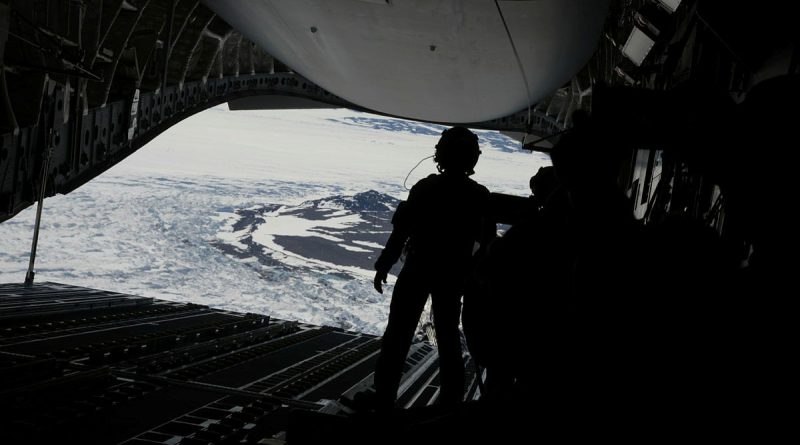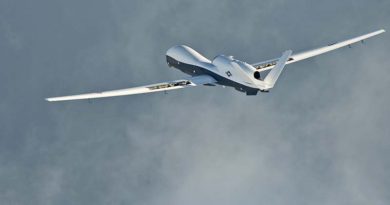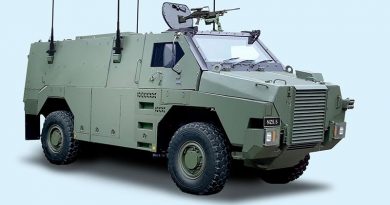Army and RAAF team up for special Antarctic air drop
Share the post "Army and RAAF team up for special Antarctic air drop"

Ending 2022 on a high, 18 soldiers from Army’s 176 Air Dispatch Squadron learnt new skills to further enable the Australian Antarctic Program’s next big mission.
CAPTION: A Royal Australian Air Force C-17A Globemaster prepares to airdrop construction and camp equipment and stores to Bunger Hills, Antarctica, as part of Operation Southern Discovery. Story by Flight Lieutenant Suellen Heath. Photo by David Knoff.
As part of Operation Southern Discovery, the air dispatch team worked with the Australian Antarctic Division and RAAF’s 36 Squadron to airdrop construction equipment and stores weighing 10,470kg from a C-17A Globemaster to Bunger Hills.

CAPTION: Construction, camp equipment and stores land at Bunger Hills, Antarctica. Photo by David Knoff.
Air dispatcher Private Jack Brook said the team, made up of 14 air dispatchers and 4 parachute riggers, spent two weeks in Hobart rigging 12 container delivery systems and one large platform.
“While in Hobart, we rigged loads that were quite new to the team due to the requirements in Antarctica,” Private Brook said.
“It required a few calculations, cutting different shaped packages for energy dissipating material and working with low-cost aerial delivery systems.
“With this mission we faced new challenges, from learning new rigging styles to learning new procedures that had been previously tested.”
The low-cost aerial delivery systems are now used for airdrops to Antarctica as they are less likely to cause environmental damage and degradation to equipment.
ADF liaison officer at Australian Antarctic Division, Lieutenant Colonel Marcus Luciani, said the stores airdropped included water tanks, dome tents, trestle tables and aluminium planks.
“The Bunger Hills airdrop delivered the camp stores to a remote site deep in the Australian Antarctic Territory to enable the Australian Antarctic Program to begin preparations for a two-year science campaign at the Denman Glacier,” Lieutenant Colonel Luciani said.
“The ADF provides a number of airdrops and air-land operations every summer season to deliver not only expeditioners, including scientists and logistic support personnel, but also cargo and machinery to further enable the program.
“The C-17A Globemaster gives the ability to move people and equipment in and out of Antarctica really quickly and gives the program the opportunity to make the most of every summer season.”

CAPTION: RAAF 36 Squadron loadmasters and Army 176 Air Dispatch Squadron soldiers load supplies onto a C-17A Globemaster at Hobart International Airport, to be airdropped into Antarctica. Photo by Leading Aircraftwoman Kate Czerny.
Australian Antarctic Division General Manager Operations and Safety, Charlton Clark, said the airdrop would further enable the program to answer the big questions that are front of mind for scientists throughout the world.
“The airdrop and retrieval was a well-planned logistical exercise to support some very important climate science,” Mr Clark said.
“We will now be able to begin setting up camp for Australian scientists to research climate impacts on the Denman Glacier.
“Scientists stay at the camp for several weeks at a time so it’s important that we get the camp’s living and research facilities well set up.”
.
.

.
.
Share the post "Army and RAAF team up for special Antarctic air drop"





